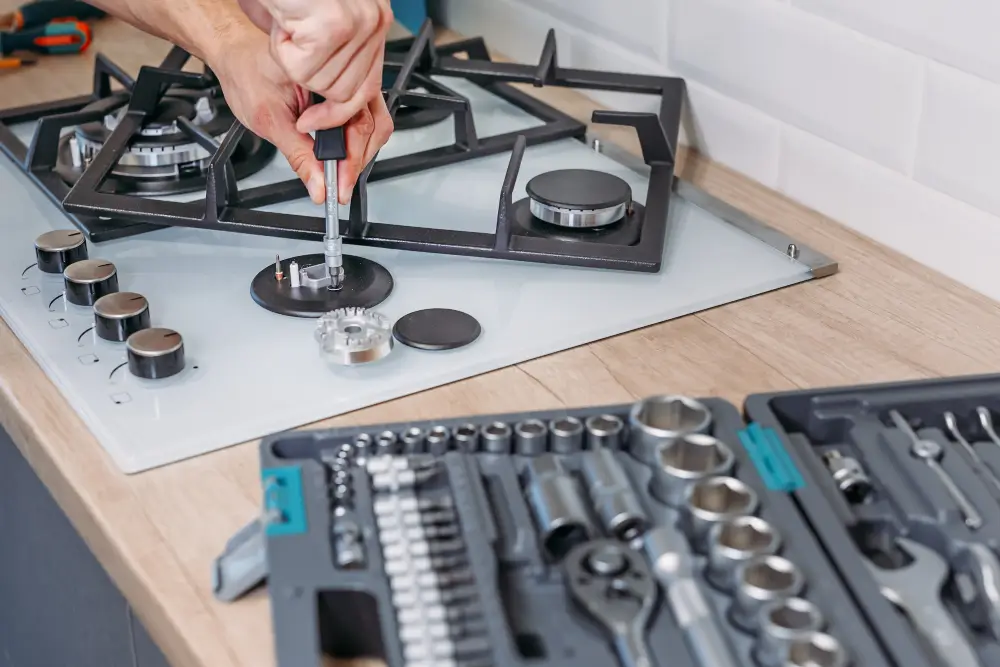A gas cooker uses natural gas or LPG (liquefied petroleum gas) to power burners and ovens for cooking in residential homes. They are popular for their instant heat control, cost-efficiency, and consistent cooking performance. It typically consists of a gas hob with multiple burners and a gas oven, often including a grill. Burners offer instant, adjustable heat for cooking, while modern models feature automatic or push-button ignition systems. All UK gas cookers must include a Flame Failure Device (FFD), which automatically cuts off the gas supply if the flame is extinguished unexpectedly, enhancing user safety.
Gas cookers offer precise and instant heat control, making them ideal for responsive cooking. They are often more economical to operate compared to electric alternatives, especially where gas prices are lower. A key benefit is their reliability during power outages, as they can still function (often with manual ignition), ensuring continued usability. Gas cookers must be installed by a Gas Safe registered engineer and connected to a suitable gas supply with proper ventilation. Safety fittings like stability brackets or safety chains are legally required to prevent tipping. Placement must follow strict guidelines to ensure safe distances from flammable materials, in compliance with UK Building Regulations and manufacturer instructions.
To ensure safe and efficient operation, gas cookers should be cleaned regularly, especially around burners to avoid blockages. An annual service by a qualified engineer is advised to detect any potential issues. Signs like yellow flames, soot, or unusual smells may indicate incomplete combustion or gas leaks and should be addressed immediately. Alternatives to gas cookers include dual fuel models (gas hob with electric oven), electric cookers, and induction cookers. Dual fuel options offer a blend of gas control and electric oven consistency. Electric and induction cookers are easier to install but may be slower to heat or require specific cookware, and depend entirely on electricity.
Installing a gas cooker within your property is not a lengthy process though it is technical. Number of considerations are usually taken into account before installing a gas cooker like:
In the UK, gas cookers must meet strict legal requirements to ensure safety and compliance. All gas cookers must be installed by a Gas Safe registered engineer, as required under the Gas Safety (Installation and Use) Regulations 1998. They must include a Flame Failure Device (FFD), which automatically cuts off the gas supply if the flame goes out. Proper ventilation is essential to prevent the buildup of harmful gases, and while not legally required in every home, a carbon monoxide alarm is strongly recommended—especially in rental properties. Additionally, the cooker must be installed according to Building Regulations, with secure fittings like a stability bracket or chain to prevent tipping and placed at safe distances from combustible materials.

A Gas Safe registered engineer will assess the location to ensure it meets legal requirements, checking for adequate ventilation, safe clearance from flammable surfaces, and access to a suitable gas supply.
At KCS Electrics, our qualified gas engineers are fully equipped to meet the specific safety and installation requirements for gas cookers in your home. With extensive experience working across a variety of domestic properties, we handle every step of the installation process with care, precision, and full compliance with UK regulations. Simply get in touch, and our team will promptly assess your space and professionally install your gas cooker to the highest standards. We pride ourselves on delivering safe, efficient, and affordable gas cooker installation services you can trust.